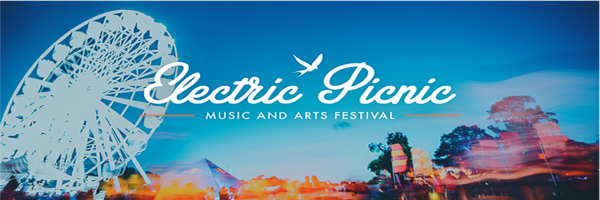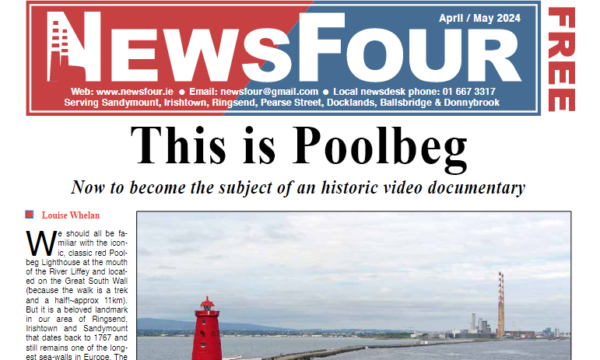
David Prendeville
One of the few constants in this government’s ramshackle reign has been the disregard and contempt which it has shown the arts sector. This came to a head recently with the decision to not allow Electric Picnic to go ahead, compounded by a photo taken of Leo Varadkar at a concert in the UK on the weekend that Electric Picnic would normally have taken place.
In fairness to the government, the Electric Picnic debacle wasn’t solely down to them. It was Laois County Council that initially took the decision to decline EP its license this year. When Tony Holohan said in a Nphet press briefing that he wouldn’t be concerned if an event such as Electric Picnic took place, if all the attendees were vaccinated, there were fresh calls on the government to step in and overturn Laois County Council’s decision.
In truth, at that stage, it was probably unlikely that such a turnaround would take place but the episode has served to highlight to the wider public some of the double standards around restrictions, particularly in relation to the arts. Particularly as it also came in the wake of the Katerine Zappone fiasco, where the government basically revised the rules in retrospect, so as to exonerate some of their members’ attendances at the party.
The government, shortly following the EP outcry, released another road map outlining when the various other restrictions would be lifted. Thankfully for musicians, the ban on indoor live music has been lifted, meaning some artists can get back to work for the first time since before the start of the pandemic. As of September 20th, live indoor events can take place for those who have proof of immunity (vaccination or recovery from covid in the last six months), with a capacity of up to 100 people. Where there is mixed immunity, pods of up to six people will be permitted. Restrictions on outdoor events and activities have now been lifted.
The full scale reopening of clubs and live events will not take place until the end of October though, when practically all restrictions are set to be lifted. While it’s undoubtedly a relief to see the end in sight, and we all sincerely hope there are no setbacks prior to that, it seems odd, but utterly fitting of this government, that while nightclubs are open across most of Europe, in Ireland they will remain closed until the very end. Also prior to that most recent roadmap released by the government, there had been speculation that the curfew on bars closing at 11.30 would be lifted immediately. But no, on this occasion, this one of the myriad cacophonous leaks that have pervaded this government’s tenure was wrong, the curfew remains.
Perhaps, to counter the negativity in how slow the government is in reopening nightlife, some of those forementioned government’s leaks have been cropping up more frequently. This time informing us about reforms to the current licensing laws which may see nightclubs and bars with a late license allowed to stay open until 5am and a reduction in the cost of late licenses. It would be nice to see Ireland’s archaic licensing laws move more in line with the rest of Europe. It remains to be seen whether this is actually something that will come to pass or more hot air from the government.
The way the government has treated the arts and entertainment sector with that of hospitality are not entirely the same thing, but there are strong correlations. Bars with a late license are surely less likely to hire live acts if they have to close at 11.30. Also the real boon for many musicians will be when the likes of Vicar St and The Button Factory are in full swing again. It’s very transparent where this government’s interests lie. While the lifting of certain restrictions is usually designated to a specific date (e.g September 20th), this government took the unprecedented step to restore capacity on public transport 100 per cent, the day after the release of the new road-map. How can it possibly be suggested that public transport (where proof of immunity is not needed) is safer than theatres, cinemas etc where proof of immunity is needed and where capacity is still capped? Reports suggest that this move on public transport was against the wishes of Nphet, showing that the government is happy to go against them when it serves their interests. With colleges and schools reopening, of course, smooth-running public transport is a necessity. Efforts should be made to find a way to increase capacity and efficiency, without being to the detriment of people’s safety. But, yet again, this move smacks of the double-standards inherent in this government’s reign.
They talk about people’s safety when it serves them, but totally disregard it when it doesn’t. The reopening of schools last year was a similar case in point. The government had fixated on schools reopening as the most important thing and the thing informing every decision they made regarding restrictions. They also maintained that schools were a safe environment. When cases shot up, they pulled out every excuse under the sun as to why it wasn’t because of schools reopening. If they were just honest with their populace and admitted schools were problematic, but that they felt it important enough to persevere, people would have had more respect for them. But this is not a government that understands respect. It has no respect for its people’s intelligence, no respect for the rules they imposed (see the Zappone incident, Varadkar attending the concert in the UK) and they command absolutely no respect themselves.
It’s interesting to consider how this period in Irish society will be looked back upon. In many countries, not just Ireland, Covid has served to exacerbate and bring to the fore existing problems – inequality, poor housing etc. While, certainly in no way comparable to those crises, perhaps the pandemic and the government’s treatment of arts and entertainment has highlighted something which was already known – that Ireland isn’t a great place to be an artist. A survey of the Pay and Conditions in the Performing Arts in 2018, for example, showed that many artists work for low pay and even well known, successful Irish artists often struggle to make a living wage. The government’s treatment of the arts sector during the pandemic was nothing new, it was just an extension of how it has long been viewed by those running this country.
Photos: courtesy Electric Picnic



